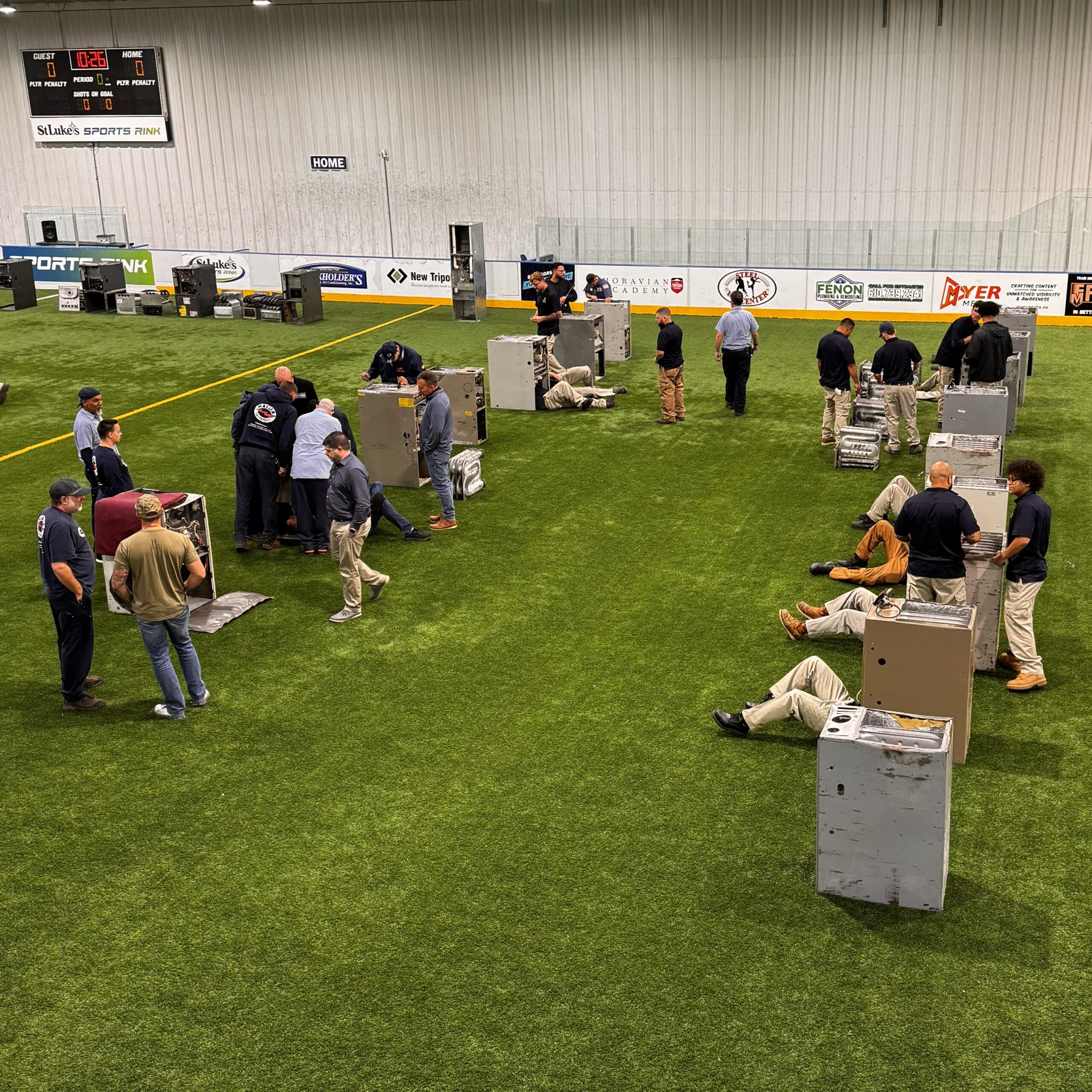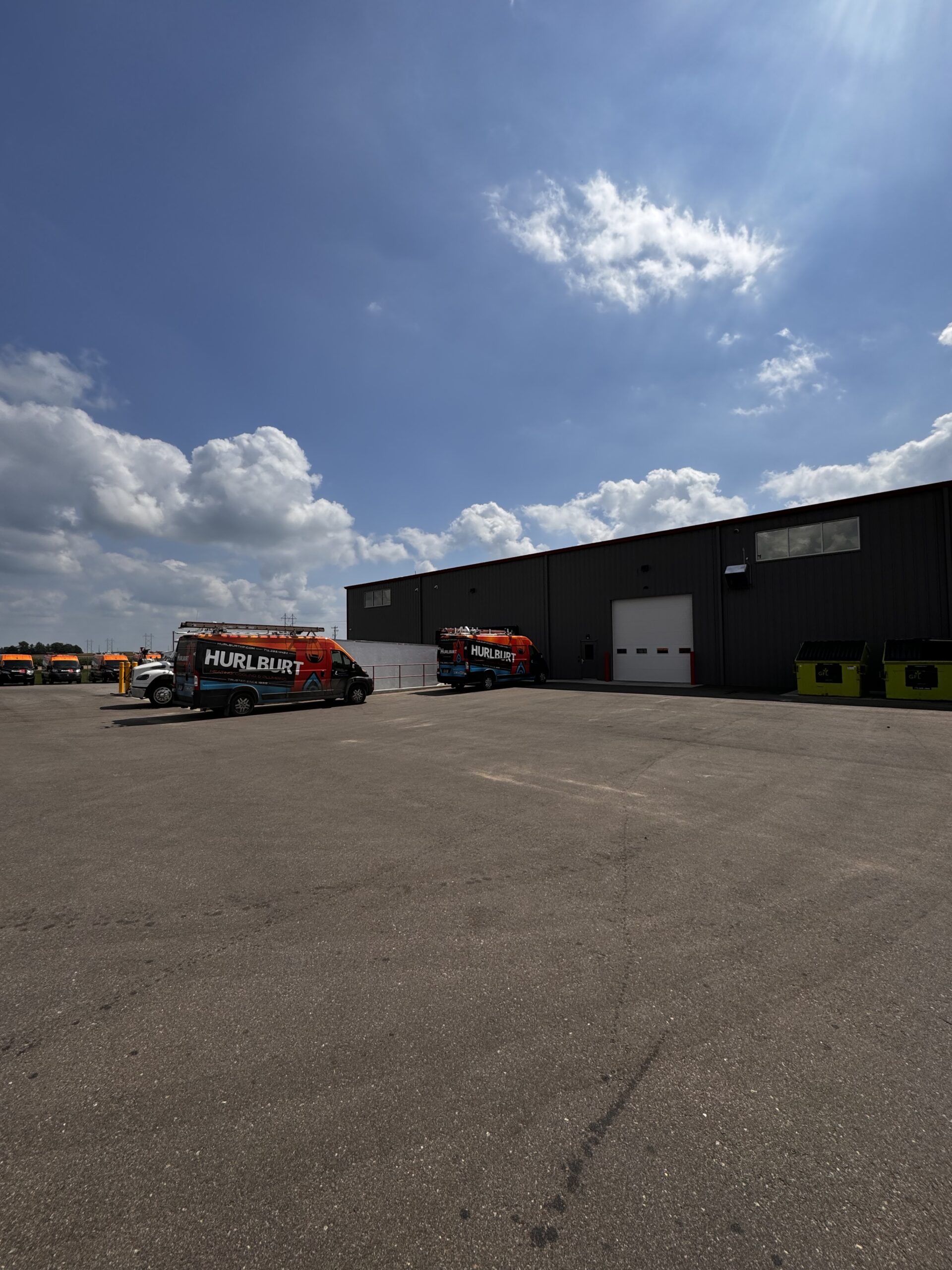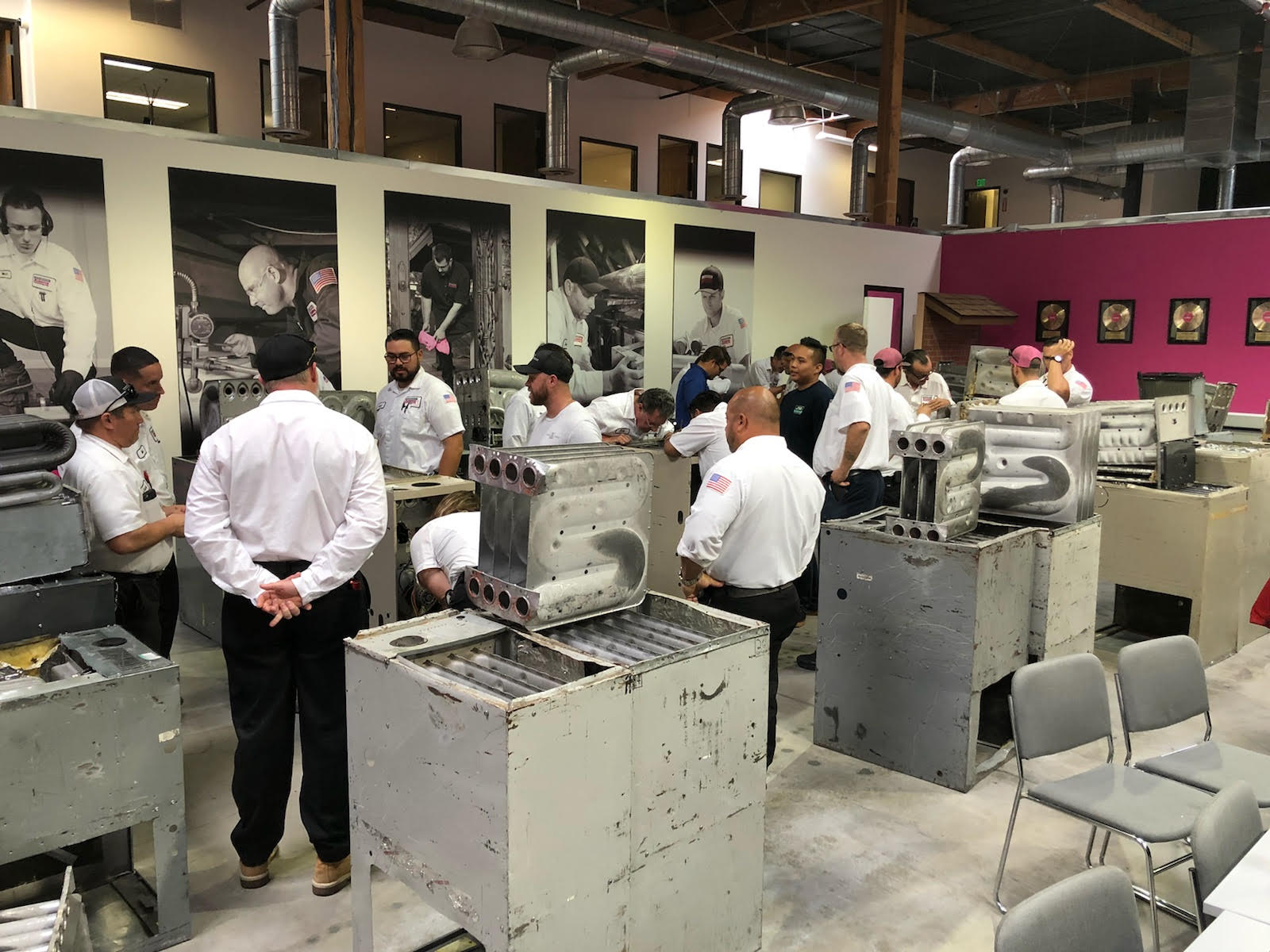How HVAC Technician Classes Prepare You for NATE Certification
In the HVAC industry, standing out requires more than basic technical knowledge—it requires certification, credibility, and proven skill. One of the most respected credentials a technician can earn is NATE certification (North American Technician Excellence). But passing the exam isn’t easy. That’s where comprehensive HVAC technician classes come in.
By aligning classroom instruction with NATE’s Knowledge Areas of Technician Expertise (KATEs), offering hands-on lab experience, and providing structured exam preparation, HVAC technician training programs lay the foundation for success on both the test and the job.
Curriculum That Mirrors the NATE Exam
NATE exams are rigorous for a reason—they assess your ability to work effectively in real-world HVACR situations. Technician classes are designed to reflect these same expectations:
- Foundational knowledge: Courses begin with HVACR science, heat transfer principles, combustion, and system design, all aligned with the KATEs.
- Electrical theory and safety: Classes cover essential safety practices and electrical fundamentals—key areas that appear on every NATE core exam.
- Specialty systems: Many programs offer modules on air conditioning, gas furnaces, heat pumps, and hydronics, preparing students for the NATE specialty exams.
This curriculum helps students build a solid understanding of both HVAC theory and practical system components, including compressors, coils, ductwork, boilers, and more.
Hands-On Training with Real HVAC Equipment
NATE doesn’t just test book knowledge—it evaluates your ability to apply that knowledge in the field. That’s why technician training programs emphasize hands-on lab experience.
Benefits of practical application:
- Tool proficiency: Students learn to use industry-standard tools like multimeters, pressure gauges, combustion analyzers, and CO detectors.
- Troubleshooting scenarios: Instructors—often industry veterans—simulate real-world problems involving airflow, refrigerant leaks, and cracked heat exchangers.
- System familiarity: Training on working models helps students recognize signs of corrosion, soot, or excess wear on heat exchangers, flues, and condensers.
By gaining experience with full HVAC systems—from air handlers and thermostats to plate heat exchangers and evaporators—students are better equipped for both the exam and field service.
Structured Exam Preparation
Quality HVAC classes also include focused resources to help students pass the NATE exam the first time.
- Mock exams: Simulated tests help build confidence by mirroring the NATE exam format and question style.
- Targeted review sessions: Programs often include deep dives into difficult areas, such as latent heat, fluid dynamics, heat transfer coefficient, and combustion efficiency.
- Study materials: Custom-built guides and review books are tailored to NATE content, reinforcing key concepts during and after class.
This structure allows students to go into the certification exam not just prepared—but confident.
Why Learn From NATE-Recognized Providers?
Heat Exchanger Experts is a NATE-recognized training provider, meaning our program has been evaluated for quality and relevance by industry leaders. Choosing a recognized provider ensures you’re receiving:
- Instruction from experienced faculty with real-world insight
- Access to the latest HVAC technology and trends
- Training that meets national standards for excellence
Whether you’re just starting your HVAC career or seeking to move into a higher-level role, NATE certification from a recognized program enhances your credibility, improves job prospects, and increases earning potential.
Heat Exchanger Training That Goes Beyond Certification
At Heat Exchanger Experts, we take HVAC technician education further by focusing on one of the most critical—and often overlooked—components in heating systems: the heat exchanger.
Our one-day training seminars are ideal for NATE candidates looking to:
- Deepen their understanding of heat exchanger inspection
- Learn how to diagnose cracks, fouling, and blockages
- Practice hands-on skills with over 70 residential heat exchanger models
- Reduce service liability and improve client safety
You’ll also receive Ellis Prach’s comprehensive training manual—a full-color guide loaded with illustrations, technical insight, and field-tested best practices.
View Upcoming Training Seminars and take the next step toward NATE certification—and a stronger HVAC career.
FAQ: Preparing for NATE Certification with HVAC Classes
Q – What is NATE certification and why does it matter?
A – NATE (North American Technician Excellence) is the most respected certification in the HVAC industry. It validates your expertise and improves your job prospects, credibility, and earning potential.
Q – Do HVAC technician classes teach the same material that’s on the NATE exam?
A – Yes. Reputable programs structure their curriculum around NATE’s KATEs, ensuring you’re prepared for both core and specialty exams in areas like air conditioning, heat pumps, and gas heating.
Q – What kind of hands-on experience will I get in class?
A – You’ll practice using tools like multimeters, pressure gauges, and combustion analyzers. You’ll also work with real HVAC systems, identifying problems like airflow restrictions, fuel combustion issues, and heat exchanger cracks.
Q – How long does it take to prepare for the NATE exam?
A – Preparation time varies by student, but most techs are ready after completing a structured class, lab training, and review sessions. Study time outside of class is also encouraged.
Q – Can Heat Exchanger Experts help with NATE exam preparation?
A – Absolutely. While we focus on heat exchanger diagnostics, our training reinforces many core competencies NATE exams cover—especially safety, inspection techniques, and advanced system diagnostics.





